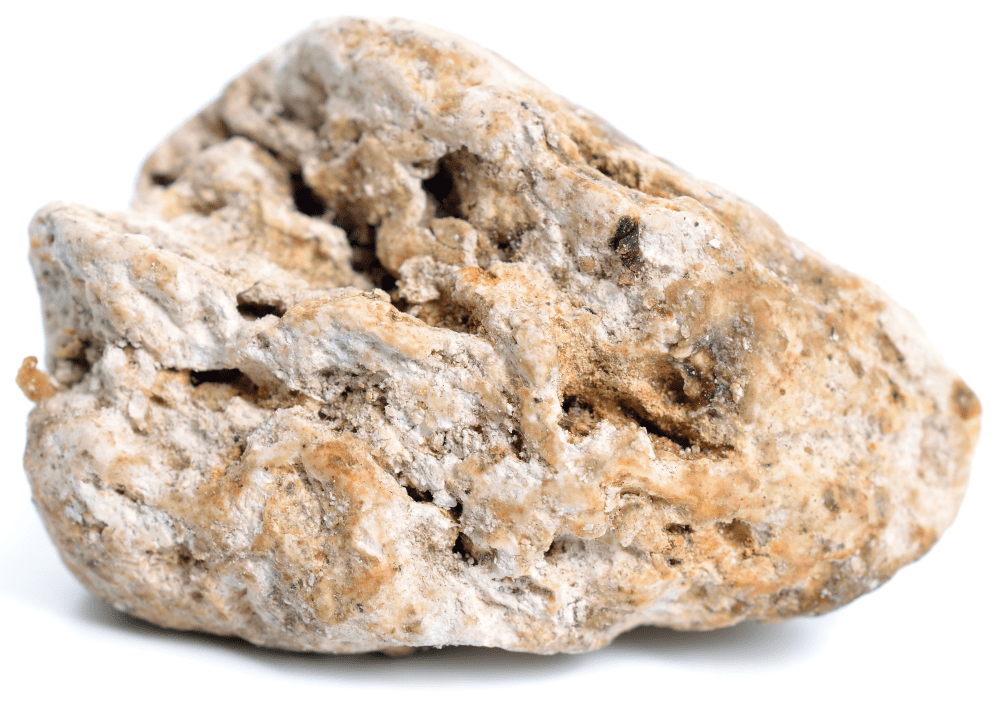Precious ambergris is an unusual auction item. The waxy lumps of whale waste have become a sought-after ingredient in perfumes, but their unusual appearance means people often confuse everything from fat to sewage and palm oil as being “floating gold” when it is, in fact, just pungent garbage.
So, how do you know if you’ve struck floating gold and found ambergris? There are a few key signs to look out for.
What is ambergris?
Ambergris is often referred to as whale sick but this isn’t exactly accurate. The by-product is made only by sperm whales who secrete ambrein as a way of gluing together the undigestible beaks of squids they eat. It’s thought doing so protects the animal’s digestive tract from the pointy beaks, but as a lump of ambergris, the waste product is probably more often pooped out than sicked up.
The pungent ambergris floats, soaking up the smells of the sea as it bobs along the surface. In time, the poop smell fades away while the ambergris gets gradually waxier and more complex in fragrance.
Why is ambergris’s price tag so high?
As the exclusive by-product of sperm whales, the amount of ambergris in the ocean is entirely dependent on the number of whales. Human whaling has pushed many cetacean species to the brink of extinction, an activity which saw sperm whale numbers go from around 1.1 million worldwide to around 300,000.
They’re now listed as vulnerable, with threats including entanglement and strandings, which are sometimes influenced by human activity. Despite this, their global population is thought to be recovering, but until we have more sperm whales, ambergris will remain a rare and pricey material.

You can sometimes see squid beaks inside ambergris. Image credit: spline_x / Shutterstock.com
What is ambergris used for?
Despite being floating blobs of feces-smelling whale waste that soak up the pungent odors of the ocean, ambergris is actually revered for its fragrance. It’s considered one of the most valuable raw materials in perfumery, but not all ambergris is equally valuable.
Fresh ambergris is useless. It’s black in color and smells like feces, which is not something perfumers are interested in. It will also have a tacky texture like wet clay, so if you find something like this, leave it alone. It’s worthless and really gross.
Ambergris that’s had time to mature into something usable is either whitish-gray or brownish-gray in color. It can have a slightly sweet aroma, and there may be visible layers. It will feel a bit waxy and oily, and there may even be pointy squid beaks sticking out of it.
How much is ambergris worth?
Depending on the size and age of ambergris, it can fetch into the millions. In 2021, a group in Yemen spotted a 127-kilogram (280-pound) mega-lump of the stuff bobbing in the ocean. After returning to the shore with their rare catch, it was estimated to be worth around $1.5 million – not bad, for a bit of whale goo.
In 2016, three sailors found an 80-kilogram (176 pound) ball of ambergris off the coast of Qurayat, Oman, which had an estimated value of around $2.7 million.
Can I go in search of ambergris?
No, not really. Even if you happened to stumble across a dead whale on a beach, less than 5 percent of carcasses have been found to contain ambergris. Sperm whales are also protected, so any kind of interference to access their ambergris or spermaceti oil (once used to fuel lamps) is very much illegal.
The only hope is to be found is on the beaches (or at sea), where – depending on your luck, and available hours for beach patrol – you may one day stumble across a blob of precious ambergris.
Source Link: How To Know If You've Found "Floating Gold" Ambergris Or Plain Old Sewage